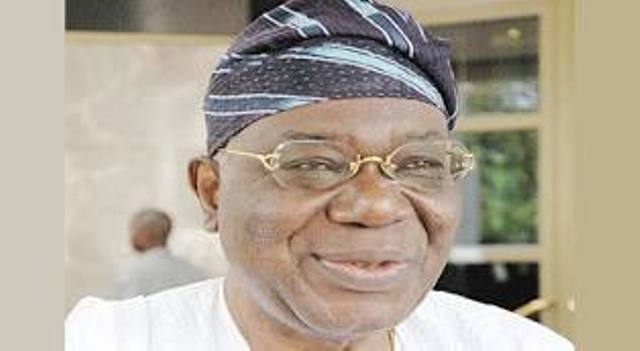Former head of Nigeria’s head of interim national government, Mr. Ernest Shonekan, is dead.
Shonekan who succeeded the military president, Gen. Ibrahim Babangida, died in Lagos on Tuesday at the age of 85.
He headed interim national government between August 26 and November 17, 1993 when he was ousted in a coup led by late Gen. Sani Abacha.
Born on May 9, 1936, Shonekan was educated at CMS Grammar School and Igbobi College.
Shonekan was son of an Abeokuta-born civil servant and was one of six children born into the family.
He received a law degree from the University of London, and was called to the bar. He later attended Harvard Business School.
Prior to his political career, he was the chairman and chief executive of the United African Company of Nigeria (successor of The Niger Company).
He joined the United Africa Company of Nigeria in 1964, at the time a subsidiary of the United Africa Company which played a prominent role in British colonisation.
He rose through the ranks in the company and was promoted assistant legal adviser.
He later became a deputy adviser and joined the board of directors at the age of 40.
He was made chairman and managing director in 1980, and went on to cultivate a wide array of international business and political connections.
On January 2, 1993, Shonekan assumed office simultaneously as head of transitional council and head of government under Ibrahim Babangida.
At the time, the transitional council designed to be the final phase leading to a scheduled hand over to an elected democratic leader of the Third Nigerian Republic.
Shonekan learned of the dire condition of government finances, which he was unable to correct.
The government was hard pressed on international debt obligations and had to hold constant talks for debt rescheduling.
In August 1993, Babangida stepped aside, following the annulment of the 12 June elections.
He signed a decree establishing the interim national government led by Shonekan who was subsequently sworn-in as head of state.
Babangida made the interim government weak by placing it under the control of the military.
Shonekan was unable to control the political crisis which ensued following the election annulment.
During his few months in power, he tried to schedule another presidential election and a return to democratic rule, while his government was hampered by a national workers’ strike.
His administration introduced a bill to repeal three major draconian decrees of the military government.
Shonekan tried to set a timetable for troop withdrawal from ECOMOG’s peacekeeping mission in Liberia. General Sani Abacha, was the minister of defence and chief of defence staff who had full control over the military.
In November 1993, three months into his administration, Shonekan was overthrown in palace coup by Abacha.
In 1994, he founded the Nigerian Economic Summit Group (NESG) an advocacy group and think-tank for private sector-led development of the Nigerian economy.
Since then Shonekan went on to feature prominently as an elder statesman.
At the time of his death he was the third oldest surviving Nigerian head of state by age after Elizabeth II and Yakubu Gowon.

























































